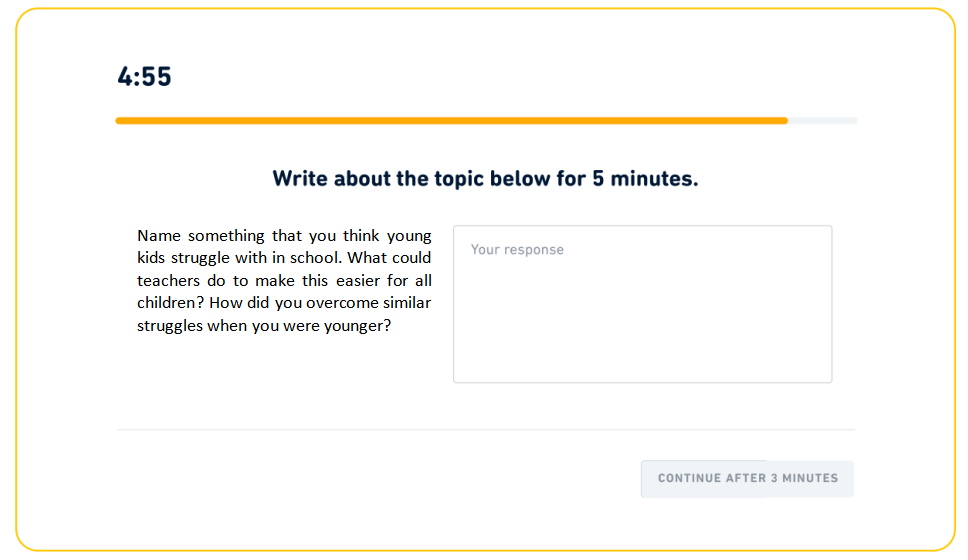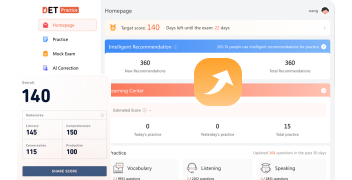10 Advanced Vocabulary for “Writing Sample” in the Duolingo English Test - Psychology and Emotions
This blog post aims to enhance your vocabulary for the Duolingo English Test, particularly focusing on psychology and emotions. Each term includes definitions, examples, and usage tips to help you express your ideas more effectively.
| Writing Sample | Personal Experience |
|---|---|
| Culture and Society | |
| Assumed Situation | |
| Historical and Cultural Reflection | |
| Ethics and Morality | |
| Technology | |
| Relationships and Communication | |
| Career and Finance | |
| Travel and Leisure Activities | |
| Physical and Mental Health | |
| Creativity and Imagination | |
| Problems and Decision-Making | |
| Faith and Values | |
| Natural Environment Protection | |
| Psychology and Emotions | |
| Friendship | |
| Education and Learning |
Advanced Vocabulary List and Applications
1. Anxiety
Definition: A feeling of worry, nervousness, or unease about uncertain outcomes.
Example: Many young children experience anxiety when faced with new challenges in school.
Usage Tip: Use this term to discuss emotional responses to academic pressures.
2. Empathy
Definition: The ability to understand and share the feelings of another person.
Example: Teachers can demonstrate empathy to help students feel understood and supported.
Usage Tip: This term is useful for describing emotional connections that enhance learning.
3. Resilience
Definition: The capacity to recover quickly from difficulties or setbacks.
Example: Teaching resilience can empower children to bounce back from academic challenges.
Usage Tip: Use this term to discuss the ability to handle failures positively.
4. Mindfulness
Definition: The practice of being fully present and aware in the moment, often used to reduce stress.
Example: Incorporating mindfulness techniques can help students manage anxiety during exams.
Usage Tip: Use this term when discussing strategies to improve focus and emotional regulation.
5. Self-esteem
Definition: Confidence in one’s own worth or abilities; self-respect.
Example: Building self-esteem in children can enhance their participation and performance in class.
Usage Tip: This term is important when addressing issues related to personal confidence.
6. Coping Mechanisms
Definition: Strategies or methods used to manage stress and emotional pain.
Example: Teaching healthy coping mechanisms can help students navigate academic pressures.
Usage Tip: Use this term when discussing ways individuals handle emotional challenges.
7. Affect
Definition: A term used to describe the experience of feeling or emotion.
Example: A positive affect in the classroom can lead to improved engagement and learning outcomes.
Usage Tip: This term is useful for discussing emotional states that influence education.
8. Attachment
Definition: An emotional bond between individuals, often observed in relationships.
Example: Secure attachments to teachers can positively impact a child's learning experience.
Usage Tip: Use this term when discussing the significance of relationships in education.
9. Cognition
Definition: The mental action or process of acquiring knowledge and understanding.
Example: Understanding cognition can help educators create effective teaching strategies.
Usage Tip: This term is effective when discussing the mental processes involved in learning.
10. Motivation
Definition: The reasons behind one’s actions or behavior.
Example: Teachers can boost motivation by making lessons engaging and relevant.
Usage Tip: Use this term to describe what drives students to learn and participate.

Sample Answer:
Young children often struggle with anxiety in school, especially during tests or presentations. To help alleviate this, teachers could incorporate mindfulness practices to assist children in staying calm and focused. Additionally, fostering self-esteem can empower students to overcome their fears. When I was younger, I faced similar challenges, but I learned to use coping mechanisms like deep breathing and positive self-talk to manage my emotions. These strategies not only helped me succeed but also made learning more enjoyable.
Further Reading:





